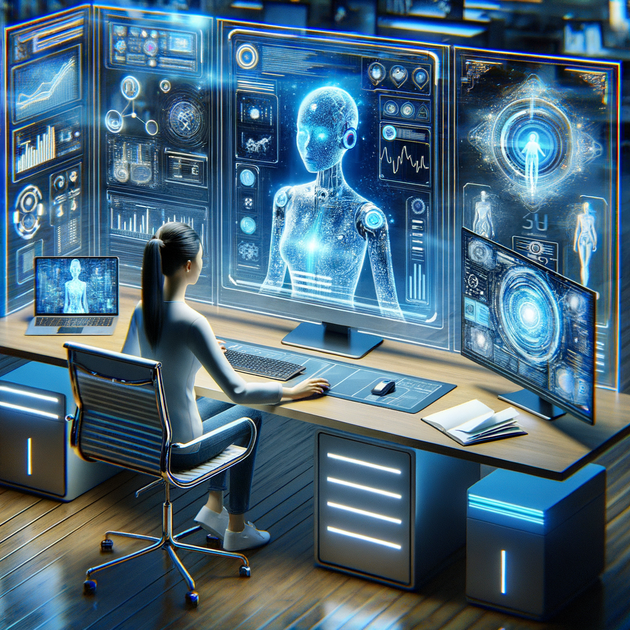How AI-Driven Personal Computer Agents are Revolutionizing Digital Interaction
Imagine a world where your computer isn’t just a tool, but an intelligent assistant that understands your needs, anticipates your actions, and performs tasks autonomously. Welcome to the era of AI-driven personal computer agents. These advanced systems are transforming the way we interact with technology, making daily tasks easier and more efficient.
The Rise of Personal Computer Agents
The concept of a personal computer agent isn’t entirely new, but recent advancements in Artificial Intelligence (AI) and Machine Learning (ML) have elevated these tools to new heights. Initially, personal assistants like Microsoft’s Clippy or Apple’s Siri offered a glimpse into the potential of AI. Today, these systems are vastly more capable, thanks to sophisticated algorithms and ever-increasing computational power.
What Exactly Are AI-Driven Personal Computer Agents?
An AI-driven personal computer agent is a software application that uses AI to perform tasks for a user. These tasks can range from simple reminders and calendar management to complex data analysis and personalized recommendations. Unlike traditional software, these agents learn from user interactions, improving their performance over time.
Key Features and Capabilities
Natural Language Processing (NLP)
One of the most compelling capabilities of AI-driven personal computer agents is their ability to understand and interpret human language. Through Natural Language Processing (NLP), these agents can engage in meaningful conversations, understand context, and respond appropriately.
Personalization
These agents tailor their actions based on individual preferences and behavior patterns. For example, if you typically schedule meetings in the afternoon, your AI agent will suggest available slots during that time frame, optimizing your schedule without your input.
Predictive Analytics
Through predictive analytics, AI-driven personal computer agents can make educated guesses about future actions. By analyzing past behavior, these agents can predict what you might need next, whether it’s a document you frequently access or a website you often visit.
Real-World Applications
Business Productivity
In the business world, AI agents streamline operations by automating repetitive tasks, such as data entry and report generation. This not only frees up employees to focus on more strategic activities but also reduces the likelihood of human error.
Healthcare
In healthcare, AI-driven agents assist in patient care by managing schedules, reminding patients of medication times, and even analyzing medical records for more accurate diagnoses.
Education
In the realm of education, these agents offer personalized tutoring, manage coursework, and provide real-time feedback to both students and educators. This individualized approach enhances the learning experience and improves educational outcomes.
The Ethical and Practical Considerations
Data Privacy
While the benefits are clear, adopting AI-driven personal computer agents does come with ethical considerations, particularly around data privacy. These systems collect vast amounts of data to function effectively, raising concerns about who has access to this data and how it’s used.
AI Bias
Another critical issue is AI bias. Since these agents learn from human interactions, they can inadvertently adopt and perpetuate biases present in the data. Ensuring fairness and accountability in AI design and deployment is paramount.
Future Prospects
The future of AI-driven personal computer agents is incredibly promising. As AI continues to evolve, these systems will become even more adept at mimicking human cognition and decision-making processes. We can anticipate a future where our digital assistants are not just reactive, but proactive partners in our daily lives.
Imagine an assistant that not only reminds you of a meeting but also preps all necessary documents, highlights key points from previous discussions, and suggests potential discussion topics—all autonomously.
The possibilities are endless, and the impact on industries ranging from healthcare to education, and business productivity to personal life management, are profound.
Join the Conversation
What are your thoughts on the rise of AI-driven personal computer agents? Are you excited about the potential, or do you have concerns about privacy and bias? Share your thoughts below and join the conversation!
For more discussions on the latest trends in AI, visit our discussion page or check out our recent post on the topic.
